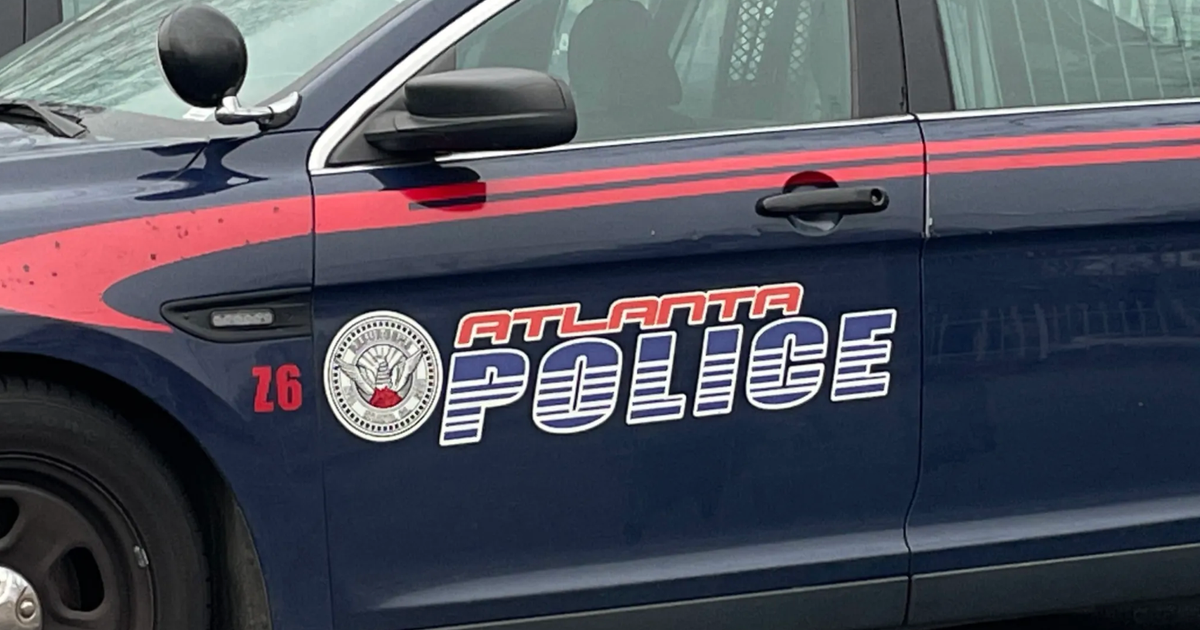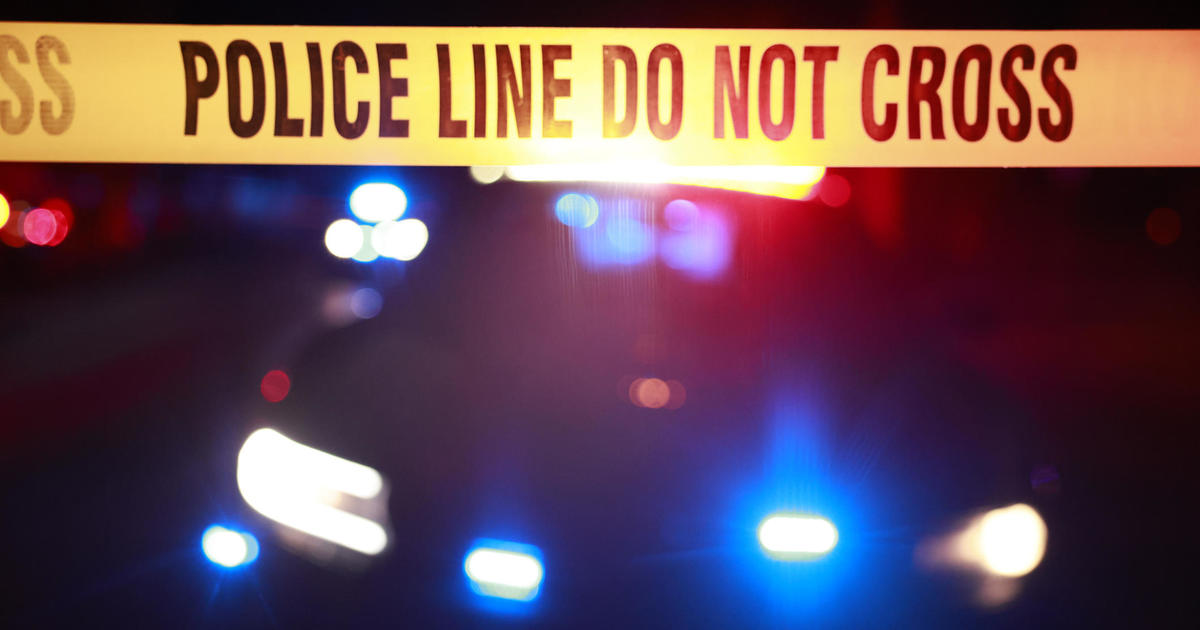De Blasio: Copenhagen Shootings Were 'Felt By People Across The Globe'
NEW YORK (CBSNewYork/AP) -- A gunman opened fire on a Copenhagen cultural center Saturday, killing one man and wounding three police officers in what authorities called a terror attack against a free speech event featuring an artist who had caricatured the Prophet Muhammad.
After searching for the gunman for hours, police reported another shooting near a synagogue in downtown Copenhagen after midnight Sunday local time. One person was shot in the head and two police officers were shot in the arms and legs, police said, adding it wasn't clear whether the two incidents were linked. The gunman fled on foot.
Police said one of the three victims of the shooting near the synagogue later died.
In a statement Saturday, Mayor de Blasio said the shooting was "not only a tragedy for the people of Denmark; it was an attack on our core values and was felt by people across the globe.
"We in New York City know all too well the danger of terrorist acts, and we are united in our resolve to celebrate diversity and defend freedom of speech," the mayor said in the statement.
De Blasio said he called the mayor of Copenhagen and to express New York City's sympathy with the people of the Danish capital and its police force.
"As I expressed to the mayor, New York stands ready to help in any way we can; no cowardly act of terror will threaten our belief in the right to free speech," de Blasio said in the statement.
De Blasio reiterated his statement following the second shooting, and expressed concern and support for the Jewish community of Copenhagen.
"The people of New York City offer solidarity to the Jewish community of Copenhagen, and urge Danish authorities to do everything possible to protect the Jewish community there," de Blasio said in the statement. "Intolerance and anti-Semitism must be confronted and defeated, and security efforts must be visible and extensive. These brutal, hate-driven attempts to intimidate must not and will not be allowed to succeed."
The earlier shooting came a month after extremists killed 12 people at a satirical newspaper in Paris that had sparked Muslim outrage with its depictions of Muhammad.
There was no immediate claim of responsibility for the first shooting, which took place shortly before 4 p.m. Saturday. Danish police said the gunman used an automatic weapon to shoot through the windows of the Krudttoenden cultural center, which TV footage showed were riddled with bullet holes. The gunman then fled in a carjacked Volkswagen Polo that was found later a few miles away, police said.
They said the victim was a man about 40 who was inside the cultural center. He has not yet been identified. Two of the wounded officers belonged to the Danish security service PET, which said the circumstances surrounding the shooting ``indicate that we are talking about a terror attack.''
Lars Vilks, a Swedish artist who has faced numerous death threats for caricaturing the Prophet Muhammad, was one of the main speakers at Saturday's panel discussion, titled ``Art, blasphemy and freedom of expression.'' He was whisked away by his bodyguards unharmed as the shooting began.
Vilks, 68, later told The Associated Press he believed he was the intended target of the shooting.
``What other motive could there be? It's possible it was inspired by Charlie Hebdo,'' he said, referring to the Jan. 7 attack by Islamic extremists on the French newspaper.
``At first there was panic. People crawled down under tables,'' Vilks said. ``My bodyguards quickly pulled me away.''
The cultural center had a lecture hall as well as a cafe. Vilks said no one in the hall was wounded.
``We were well isolated in there. It would have been much worse if this happened during the break, when people walk out,'' Vilks said.
He said he deplored the death and the injuries but was unfazed as to what it meant for his own safety.
``I'm not shaken at all by this incident. Not the least,'' he told AP by phone.
Police initially said there were two gunmen but later said they believed there was only one shooter. They described him as 25 to 30 years old with an athletic build and carrying a black automatic weapon. They released a blurred photograph of the suspect wearing dark clothes and a scarf covering part of his face.
``I saw a masked man running past,'' said Helle Merete Brix, one of the event's organizers. ``I clearly consider this as an attack on Lars Vilks.''
Niels Ivar Larsen, one of the speakers at the event, told the TV2 channel he heard someone shouting and firing automatic weapons. ``Police returned the fire and I hid behind the bar. I felt surreal, like in a movie,'' Larsen said.
Visiting the scene of the first shooting, Danish Prime Minister Helle Thorning-Schmidt called it a ``political attack and therefore an act of terror.''
Police spokesman Joergen Skov said it was possible the gunman had planned the ``same scenario'' as in the Charlie Hebdo massacre.
François Zimeray, the French ambassador to Denmark who was at the event to speak about the Charlie Hebdo attack, tweeted that he was ``still alive.'' Police said he was not wounded.
French President Francois Hollande called the Copenhagen shooting ``deplorable'' and said Thorning-Schmidt would have the ``full solidarity of France in this trial.'' French Interior Minister Bernard Cazeneuve was arriving Sunday in Copenhagen.
Leaders across Europe condemned the violence and expressed support for Denmark. Sweden's security service said it was sharing information with its Danish counterpart, while U.S. National Security Council spokeswoman Bernadette Meehan said U.S. officials were ready to help with the investigation and have been in touch with their Danish counterparts.
Vilks has faced several attempted attacks and death threats after he depicted the Prophet Muhammad as a dog in 2007. A Pennsylvania woman last year got a 10-year prison term for a plot to kill Vilks. In 2010, two brothers tried to burn down his house in southern Sweden and were imprisoned for attempted arson.
Vilks told the AP after the Paris terror attacks that, due to increased security concerns, even fewer organizations were inviting him to give lectures.
The depiction of the prophet is deemed insulting to many followers of Islam. According to mainstream Islamic tradition, any physical depiction of the Prophet Muhammad _ even a respectful one _ is considered blasphemous.
While many Muslims have expressed disgust at the deadly assault on the Charlie Hebdo employees, many were also deeply offended by its cartoons lampooning Muhammad.
(TM and © Copyright 2015 CBS Radio Inc. and its relevant subsidiaries. CBS RADIO and EYE Logo TM and Copyright 2015 CBS Broadcasting Inc. Used under license. All Rights Reserved. This material may not be published, broadcast, rewritten, or redistributed. The Associated Press contributed to this report.)







